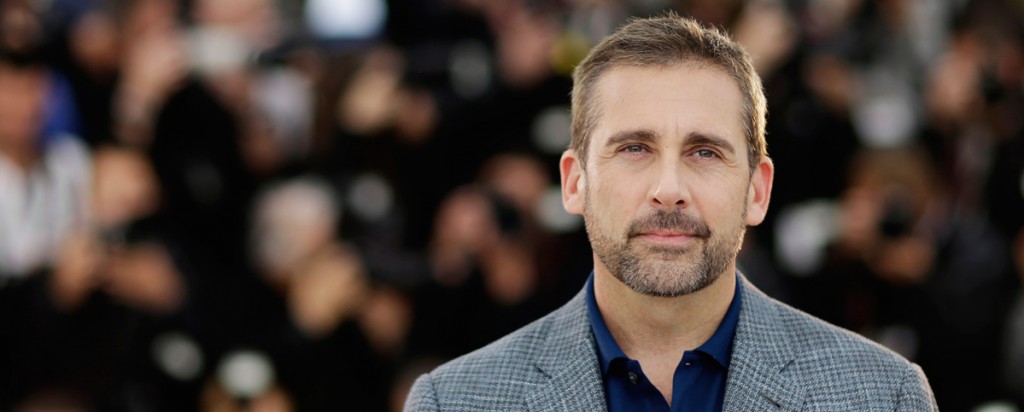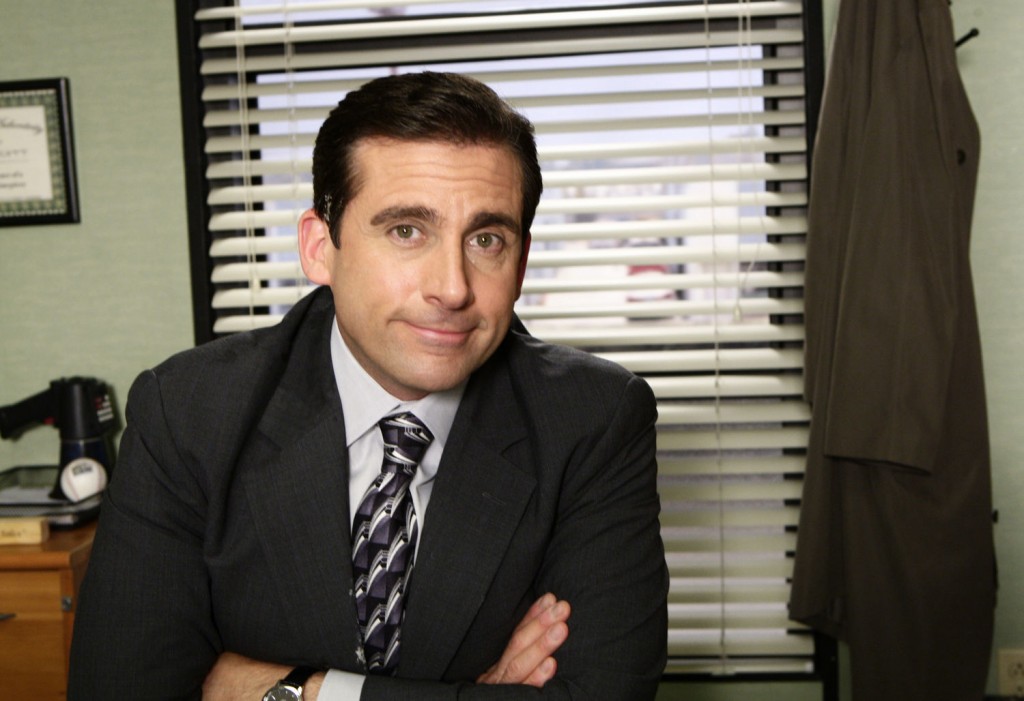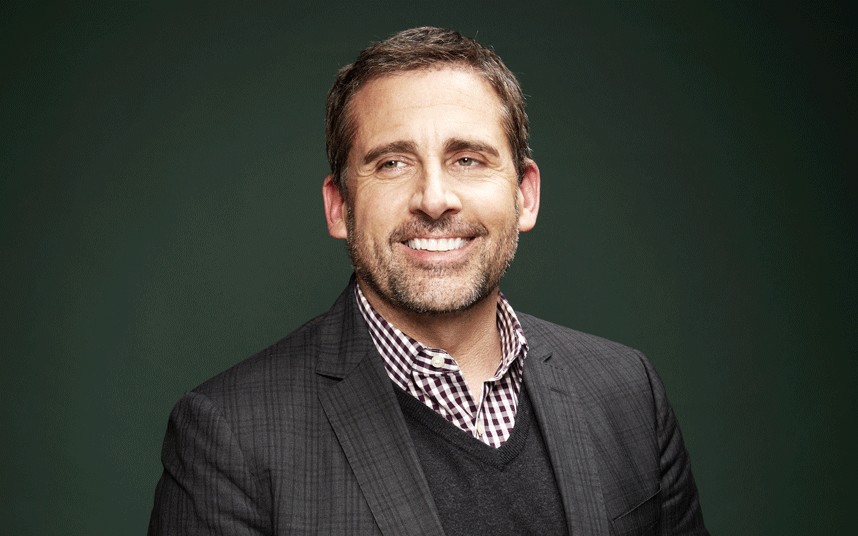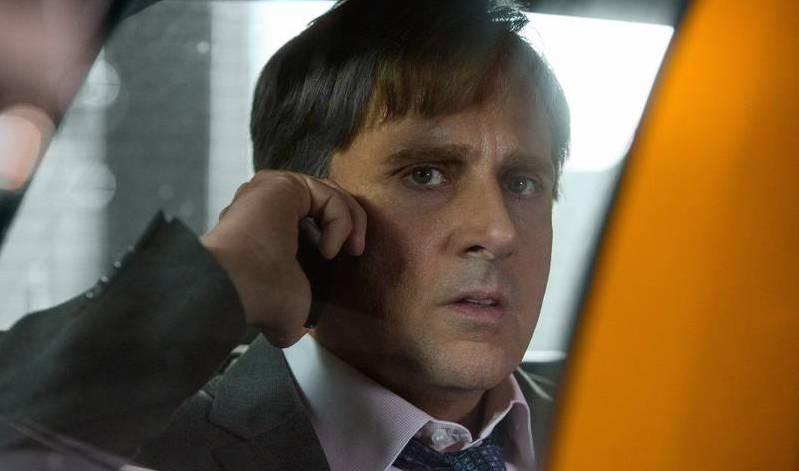Alex writes about Steve Carell, and how his skills as an actor are under-appreciated.
So I’m going to start this essay by making my concluding point known immediately, in the exact opposite way I had intended to. This is a piece about how much I like Steve Carell as an actor, and how his skills are directly tied to how well he blends into the fabric of his roles. As will become clear toward the end, I view his greatest talent as his ability to avoid drawing attention to himself. My greatest fault as a writer, on the other hand, is an overabundance of obviousness. I am drawing your attention in my direction right now, beloved reader, further proving my point.
Until I started writing in the margins, though, this whole thing was boring as fuck. Now at least it has the spice of an f-bomb and some clear fourth wall breaking that Deadpool’s success has lead us to realize culture now fully accepts, but those are merely here to help you skip over the fact that I have failed at a fundamental level. This was all meant to be a simple, exclamation-free piece about Steve Carell’s career, and specifically how Steve Carell excels in an unnoticeable way.
And yet, I cannot stop myself from italicized exclamation. I am the same as all the chaff. I am making the obvious choices to make it obvious that I have made choices, instead of successfully existing in the background.
It has become common practice to talk about Steve Carell’s talent as an actor. He was nominated for an Academy Award last year, so naturally this will happen around water coolers, or Muldoon’s Coffee dispensaries, or wherever people gather in offices these days. I have been asked about Carell a lot recently too, as The Big Short falls very much into the category of “film a lot of my friends will totally see,” and Carell is very, very good in that film.
When people ask me about Carell, it’s always in the vein of, “He’s good, right?” Nobody can really say for sure, because we’re unsure if this is an opinion one is allowed to have publicly. “Have we decided this affable goof is talented?” people think quietly. “I thought we made fun of comedians that tried to be in dramas? This is where I say ‘Spanglish’ and start laughing, right?”
But Steve Carell is good, and he is good in pretty much everything. My general responses to questions about Carell’s quality are some variation of the following sentence:
“He’s overrated in Foxcatcher and underrated in pretty much everything else.”
This is not an attack piece on Bennett Miller’s tonally confused wrestling film, nor prosthetics-based acting as a whole, although there will be criticism lobbed at both soon enough. Until then, though, consider this as more a celebration of just about every other role Carell has ever given himself over to.
I generally say a truly talented actor most shows their level of dedication to their job in horrible films. Jesse Eisenberg and Kristen Stewart both give very good performances in the very good film Adventureland, but when Eisenberg and Stewart play a couple in the way shittier American Ultra, they are somehow extraordinary in a film that they are both much too good for. Liam Neeson is in three different American Ultras each year, and the performance he gives in each one only serves to make me like him more. When you try to raise dreck to a better level by performing above average in something substandard, I will appreciate your hustle every time. Steve Carell has more than a few of these terrible films on his resume, a list of boring failures that Carell still manages to excel in.
The genesis of this piece starts in June of 2012, as I was sitting in a theatre watching Seeking a Friend for the End of the World. This movie did not turn out to be very good at all, but as I watched this just okay film with a more than stellar cast, I thought to myself, “Steve Carell is so much better than this movie deserves.” And then – to avoid the more unfortunate aspects of the Hollywoodized version of Don McKellar’s Last Night – I spent the rest of the film thinking about the various careens of Carell’s career.
This is pretty much where I started to realize I was failing at what I had set out to do. The facts contained in the above stuff are interesting, but not in a way that hasn’t already said by other, better writers. It’s not funny or clever enough to set itself apart from the pack, so here I am again, making sure you know I am putting in some effort in the laziest possible way, by engaging with my own thoughts. Anyway, onward.
Carell’s notable onscreen work begins with his correspondent gig on The Daily Show, and then in features as Brick in Anchorman. But it (obviously) begins in earnest with his starring role on The Office, on which Carell somehow made Michael Scott simultaneously hateable and loveable. The show was able to eventually be a ratings sensation in America because it was possible to despise Michael Scott and root for him to succeed, as opposed to his perpetually and immensely detestable British forefather David Brent.
One of the defining aspects of Carell’s work is the fact that, despite the role being simple on paper, I can imagine nobody else who could have played Scott with the same amount of effectiveness. He simultaneously elicited raw hatred while maintaining a level of innocent humanity, and it was this skill that defined the role. There were myriad episodes where Michael Scott does myriad unlikeable things, but the show’s producers would make sure to occasionally show a reason behind Scott’s manner so that he never crossed over into villainy. (The Dinner Party is probably the best example of this empathizing.)
In the summer between season one and two of The Office, Carell co-wrote and starred in Judd Apatow’s feature directorial debut, The 40-Year-Old Virgin. The movie became immensely successful because it was funny, Carell was likeable in it, and it was released in an August dead spot for filmgoers. Between that film’s success and America eventually catching onto The Office (partially through Virgin’s success), Carell was off to the races. When Little Miss Sunshine became a runaway independent success the following year, we were all collectively ready for Carell’s Proust-loving suicidal brother, and Carell made the transition to dramatic actor much quicker than most fellow comedians.
Of course, there is much failure in Carell’s oeuvre as well. Evan Almighty was a failed venture before a single magazine of film rolled, and nobody saw Dan in Real Life. Get Smart was fun but ultimately unsuccessful, and Date Night’s finest moments came in the end credit blooper reel. Frankly, Carell might be underappreciated simply because he has appeared in a lot of shitty movies. Nobody wanted to see Dinner for Schmucks, so Carell must not have been good in it, right? Evan Almighty never should have existed, and we took it out on the face of the film as opposed to the production crumbling around behind him. And then there’s the whole fact that an actor has to work: perhaps Carell wasn’t pleased with the film offers he had and took a role in Date Night simply because he thought it would be fun to hang out with Tina Fey for a couple months and get paid well to do it.
Another part of what has hurt Carell’s career is simply that we have all been a bit slow to catch on to how good he is due to factors entirely out of his control. Even when he was in decent films, like Crazy Stupid Love, it couldn’t be Carell’s movie simply because of the timing of its release. 2011 was the year of Ryan Gosling, and the hangover of the Easy A-based Emma Stone lovefest, so Crazy Stupid Love could never be Carell’s film, despite the fact that he’s (more or less) the lead in it.
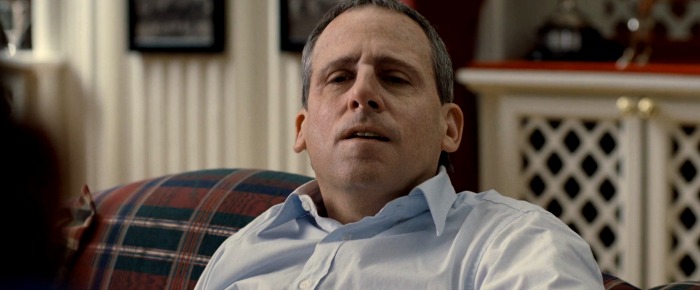
Fast forward to 2014, though, and we get a film that is definably Carell’s. He plays John Du Pont in Bennett Miller’s aforementioned wrestling-ish drama and, despite spending the whole movie looking like Mike Krzyzewski dealing with a bout of food poisoning, Carell is very good in it. Everybody seems to agree on that fact, and those that saw the movie were more inclined to sign onto the idea of Steve Carell, Thespian.
In Foxcatcher, we see Steve Carell doing things that we have decided the most talented of actors do: Carell wears prosthetics, he plays a real person, and he plays a creepily villainous dude. It had been eight years since he played a dramatic role in a film that was popular – the previous one being Little Miss Sunshine, and even that film is still a comedy at its core – so he also had the element of surprise at his back. Add in a previously established prestige director such as Bennett Miller – somebody who helped the even more unserious Jonah Hill to his first Oscar nomination for Moneyball – and you have the recipe for people to start catching onto your skill as an actor.
But this was the problem with Carell’s performance in Foxcatcher: all of these things made it obvious that he was acting, and that his acting needed to be noticed. It flew in the face of all the impressive stuff he had been doing for years. We had to acknowledge his talent now, because he had stopped obscuring it with naturalism.
So here is the Carell conundrum: why is he so good without ever jumping out as such? Well, that’s simple: he blends in, because that is an actor’s job. He doesn’t have to eat raw bison liver, or reside in an Irish cave for a year honing a character’s voice. Carell just exists in the movie he’s in, to serve the ideas that drive the film. That’s why his performance in Foxcatcher was less enjoyable: it was so much more obviously a performance than anything else he had tackled previously, and it diverted focus from the movie’s ideas.
Consider these interjections the prosthetic nose of this essay. I am writing, can’t you see? Effort has been made here, work has been done, and I sat down in this chair and refused to stand up until the face of my argument was properly obscured by unnatural elements. I am Nicole Kidman in The Hours, Marion Cotillard in La Vie en Rose, Steve Carell in Foxcatcher.
When one looks at Carell’s live-action film career, he always plays a middle-aged man, sure, because that is what he is. That’s what he looks like, so that’s what he plays. But he’s often doing variations within that same pigeonhole. His roles vary from a shitty stepdad in The Way, Way Back, to a sweet man whose various hang-ups have made him give up on romance in The Forty-Year-Old Virgin. He has played a husband looking to reignite his marriage in Date Night, and a divorced father trying to figure out how to be single again in Crazy Stupid Love. In Seeking a Friend for the End of the World, he was a man who is trying to deal with his bolting wife, and in The Big Short he was a man trying to come to terms with widespread financial collapse (as well as his brother’s death). And he’s amazing at all of these different characters, his performances varying appropriately throughout the films. He never makes himself more obvious than he needs to be; he’ll hang out in the background if that’s what is called for.
Early in The Office’s second season, there’s a scene where Jim and Pam are talking to each other in a Chili’s parking lot. On the commentary track for the episode, producer Greg Daniels talks about how Michael Scott was intended to start the shot by driving past and briefly waving goodnight, and Carell was doing this for over ten takes at 1am in the morning. On the previous weekend, The Forty-Year-Old Virgin was the number one in the country. This was the work of a double, and yet it was being done by Steve Carell himself.
“No job too small for Steve,” BJ Novak chimes in on the track.
If that’s what it takes. The parking lot scene remained in the final cut, but the shot of Carell was cut out of the episode. I bet he didn’t mind.
Now, for the conclusion that I didn’t feel confident enough to let stand on its own. And how did I miss an opportunity to discuss at length how good Carell is in The Big Short? He’s so fucking good in that movie that I assumed he was up for an Oscar for weeks after the nominations had already been announced.
But I guess that’s the point. Christian Bale was the one who got nominated for an Oscar for that movie, because he is so obviously doing something. He is all-caps ACTING, and we can all appreciate that, with the fake eye and drum solos of rage that come with it. Bale is doing what we have accepted our actors are supposed to do, drawing attention to themselves while being interesting, as opposed to what they probably should be doing: the best that they can, in the most natural way possible.
When somebody can be so natural, so free, as to not allow us to notice them in a film, I find it admirable. It’s looking at somebody that is able to put the outside world on hold without making a big deal out of doing so. Carell is doing what he does simply because that is what he does. He exists, he is natural, and he excels without ever appearing to try.
“He’s good, right?” I will be asked again.
“Unequivocally.”
I hope to one day make someone similarly confused.

